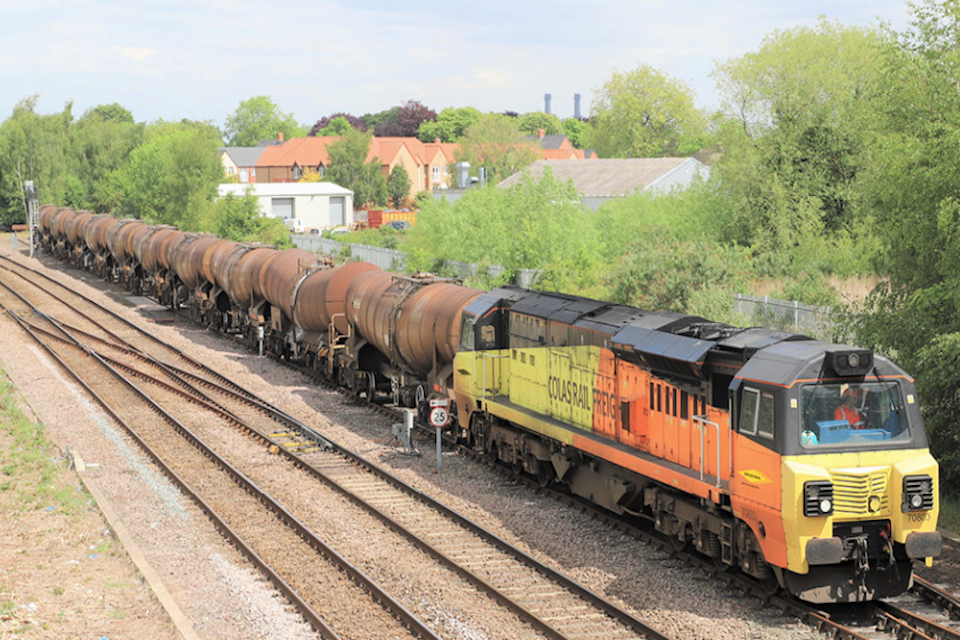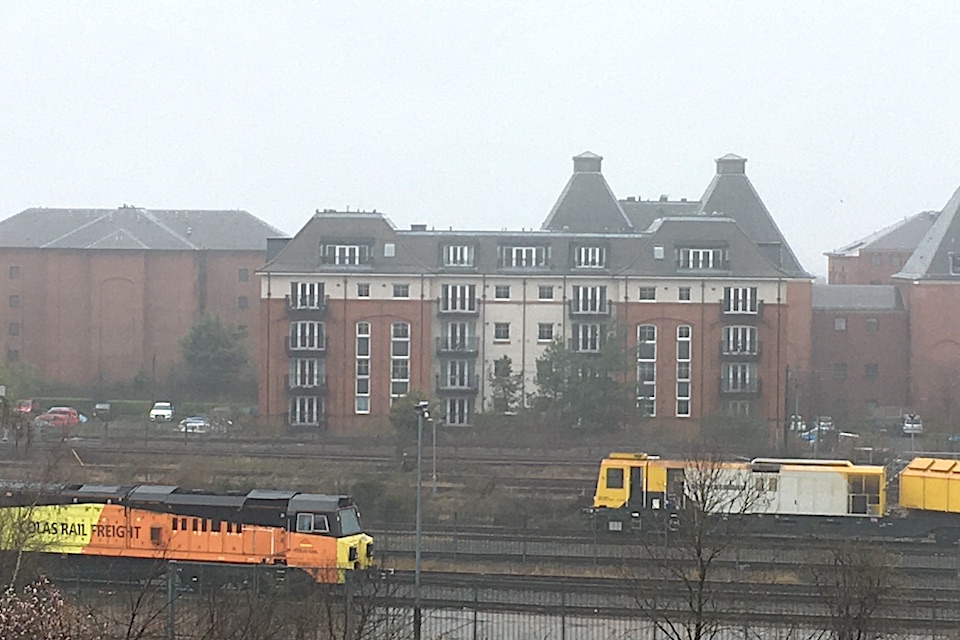UK freight operator trials solid oxide fuel technology

A specialist operator in the UK is trying a new trick in the effort to decarbonise the industry. Colas Rail UK’s freight business has collaborated with G-Volution Ltd to decarbonise locomotive operations by using solid oxide fuel cells (SOFC) running on near net zero carbon emission Bio Liquefied Petroleum Gas (Bio-LPG) to generate power for auxiliary load.
Most locomotives, particularly in the freight sector, are still heavily reliant on diesel fuel. That remains a major source of carbon emissions, and that’s why Colas Rail UK are trying a new approach. In a collaboration led by innovators G-Volution, they’ve partnered up to install an SOFC into a vintage Class 37 locomotive to power the auxiliary systems. This proof of concept was successfully showcased at their Rugby Depot in front of an invited industry audience.
Savings well worth addressing
Colas Rail UK is particularly well known for their engineering support efforts and their bulk cargo operations. The company has been looking at cost-effective ways to reduce emissions from their operations. The company operates a diverse fleet of self-propelled engineering vehicles and diesel locomotives, ranging from modern class 70 heavy-duty units less than ten years old, to the versatile mid-powered class 37, which has been around since the 1960s. It is an example of the latter that has been the subject of this latest trial.

While not replacing the prime mover in the locomotive, the innovation of the SOFC technology, led by G-Volution, has been providing power for the exterior and interior lighting of locomotive 37254. Route simulations by the University of Birmingham using a 35kW SOFC show that for a typical Class 37 operation, using two locomotives will save on average 50 tonnes (12%) of CO2e per annum and combined with an average eight per cent reduction in fuel costs. In the narrow margins of the rail freight industry, that’s a saving well worth addressing.
Reduced particulates and idling
SOFCs are fuel-flexible and process bio-fuels such as Bio-LPG, Bio-LNG and hydrogen and generate electricity.
“Innovation with a focus on decarbonisation is essential given the challenge to reduce fossil fuel dependency, ” commented Paul Conway, Head of Engineering and Compliance at Colas. “This trial has proven that a lower carbon option is available for auxiliary power generation. It’s still early days for this technology, but it’s an excellent start and something that Colas Rail Services have been proud to be a part of.”

The SOFC project is funded by the UK Government’s Department for Transport’s Innovate UK First of a Kind competition. According to Colas, other benefits include improved air quality – zero particulate matter and nitrogen oxides are produced by the SOFC. Those familiar with the class 37 will also appreciate the significant reduction in noise and engine idling – something that has been an issue at the Colas depot in Edinburgh, which lies deep within a residential neighbourhood. An unexpected additional benefit of solid oxide fuel cell technology: a good night’s sleep.




